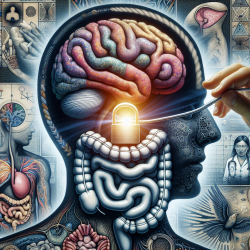Understanding the Gut-Brain Connection in Parkinson's Disease
Parkinson's Disease (PD) is often recognized for its motor symptoms such as tremors, rigidity, and bradykinesia. However, a growing body of research highlights the significance of nonmotor symptoms, particularly gastrointestinal (GI) dysfunctions, which may precede motor symptoms by several years. This insight is crucial for speech-language pathologists and other practitioners aiming to improve therapeutic outcomes for individuals with PD.
The Gut-Brain Axis: A New Frontier
According to the research article "Gastrointestinal Dysfunctions in Parkinson's Disease: Symptoms and Treatments," nonmotor symptoms, especially GI dysfunctions, could serve as early biomarkers for PD. Braak's hypothesis suggests that PD may originate in the intestine and spread to the brain via the vagus nerve. This theory underscores the importance of the gut-brain axis in understanding and managing PD.
Implications for Practitioners
For practitioners, understanding the gut-brain connection offers several potential benefits:
- Early Detection: By recognizing GI symptoms as potential early indicators of PD, practitioners can advocate for earlier interventions, potentially delaying the progression of motor symptoms.
- Comprehensive Treatment: Addressing GI dysfunctions can improve the overall quality of life for PD patients, as these symptoms often impact medication efficacy and nutritional status.
- Interdisciplinary Collaboration: Working closely with gastroenterologists and neurologists can enhance the management of PD, ensuring that both motor and nonmotor symptoms are addressed.
Encouraging Further Research
The complex relationship between the enteric nervous system and PD necessitates further research. Practitioners are encouraged to stay informed about emerging studies and consider participating in research initiatives that explore the gut-brain axis. Such involvement can contribute to the development of innovative therapeutic strategies that may revolutionize PD treatment.
Conclusion
Understanding the gut-brain connection in Parkinson's Disease is a promising avenue for improving patient outcomes. By focusing on both motor and nonmotor symptoms, practitioners can offer more comprehensive care. To delve deeper into the research, read the original article: Gastrointestinal Dysfunctions in Parkinson's Disease: Symptoms and Treatments.










